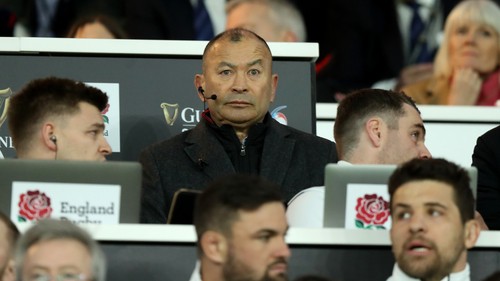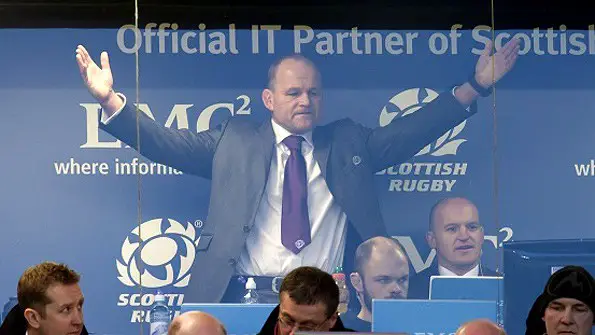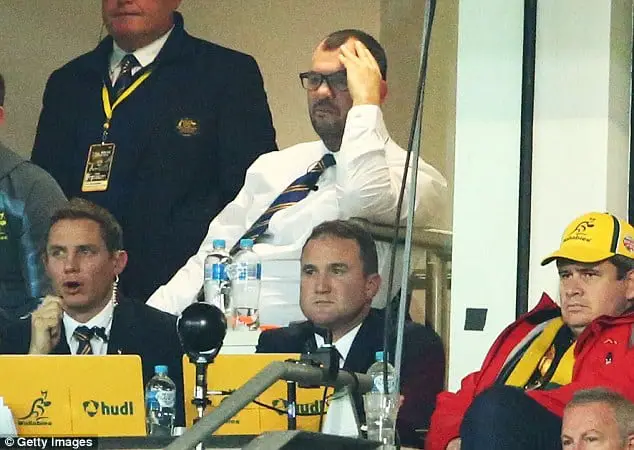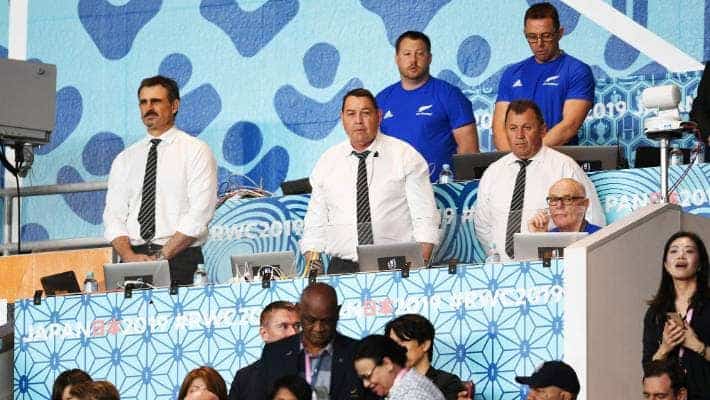
If you have checked out a rugby sideline during a match you will have noticed that there is no head coach in sight. The head coach hasn’t just ducked outside for a ciggie intermission or a quick bathroom intermission. No, rugby head coaches sit in their own suite which is elevated above the pitch in the grandstand. This is very different to football coaches who are amongst the thick of the action on the sideline.
Why do rugby coaches sit in the stands?
Rugby coaches sit in the stands so they can have the best view of the game. They are able to spot details and alter their tactics accordingly. By sitting in the stands rugby coaches also prevent themselves from becoming too emotional and abusing referees and costing their side the match.

Rugby coaches prefer to sit in the stands due to the greater vantage point it provides them. During a rugby match there is so much going on that from the sideline it can be hard to see certain phases of the game particularly if the players are on the opposite of the field or tucked away into a corner. By sitting in the stands rugby coaches are able to see what is happening at all times.
By having a bird’s eye view of the game it also makes a rugby coach’s key role during a match much easier, making substitutions. By looking down on the game rugby coaches can easily identify which players are suffering from fatigue, slowing down or are not making a strong enough impact on the match. A well timed substitution can significantly alter the outcome of a game of rugby so coaches take this job very seriously.
They further increase viewing ability by having a monitor playing the match next to themselves in case they missed a key moment or need to rewind a certain play. This viewing experience is significantly superior to sitting on the sideline.
While rugby coaches do need to communicate with their players with the development of technology they don’t need to worry about screaming at the top of their lungs from the sideline. Nowadays coaches are equipped with mouthpieces that use to talk to their assistants on the sideline who then relay the coach’s message to the players.
Even though there is a risk of chinese whispers, the instructions are usually simple enough that the players are able to get accurate instructions through the assistants.
While occasionally it is important for rugby coaches to communicate with their players it doesn’t need to happen constantly. Usually a few messages each half are all a rugby coach needs. For the most part rugby coaches rely on their half time speech with players face to face to communicate the tactics to their players.
Rugby coaches are happy to leave it to their assistants on the sidelines to motivate and yell and scream at the players. Head coaches tend to stay above that and focus on key tactical changes and try to remain calm and logical.

Even though rugby coaches try to remain cool, calm and collected they have been known to lose their cool and become overly emotional. This often leads to coaches screaming, swearing and abusing referees. The fact that they are locked up in a suite high up in the stadium prevents any of their potential outbursts being overheard by referees which could result in penalties, fines and suspensions.
Rugby coaches are explicitly banned from talking to referees at all during rugby games. By sitting in a box naughty coaches can not be tempted to slip a few words in to the referees. This didn’t stop Wallabies Michael Cheika from being fined for talking to the referees.
Rugby coaches don’t want to cost their side a match because they lost their mind and started abusing a referee. To prevent this situation from occurring they will sit in the stands rather than on the sidelines.

Rugby coaches didn’t always sit in the stands. Before the invention of headsets and wireless communication coaches would be on the sidelines with their players screaming and shouting out instructions. Referees would often cop abuse from irate coaches who couldn’t accept certain decisions.
Even to this day some rugby coaches prefer the sideline to the coaching box. Standing on the sideline appears to be particularly popular with French coaches, maybe due to the influence of France’s strong football tradition and their managers who despite the advances in technology have not budged from their sideline seats.
